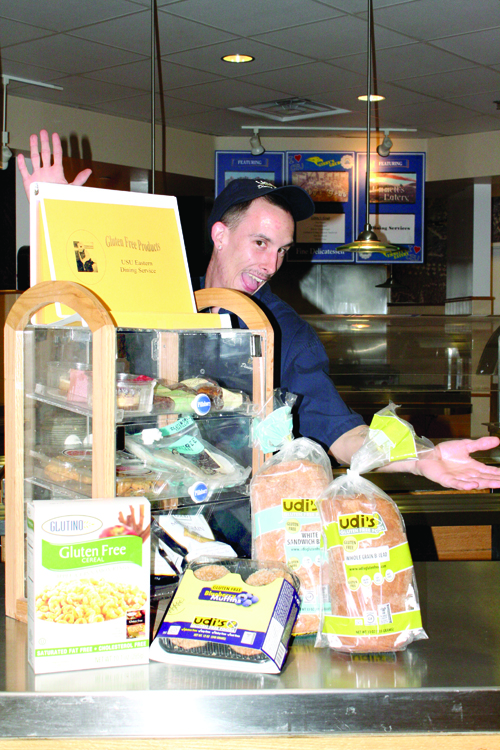Celiac disease trend accommodated at dining services
With more students being diagnosed with Celiac disease, USU Eastern’s dining director Becky Archibald, decided to offer some “gluten-free food” in the cafeteria this year to accommodate students with the disease.

This archived article was written by: Mike Gingell
With more students being diagnosed with Celiac disease, USU Eastern’s dining director Becky Archibald, decided to offer some “gluten-free food” in the cafeteria this year to accommodate students with the disease.
Celiac disease is found more and more common in today’s world in ever an increasing frequency. It can be a hereditary digestive disorder involving intolerance to gluten, and can cause a loss in energy, acne, gastrointestinal problems such as bloating, diarrhea, cramping, and constipation. This disease can appear at any age. Gluten is a protein found in wheat, barley and rye and countless other products like bread and pasta that contain those grains. When they consume gluten, someone with Celiac disease slowly damages their intestines, preventing the absorption of vitamins and minerals which will cause health problems slowly.
Only about one percent of Americans suffer from Celiac disease, according to a study done by CNN in 2011. This number of gluten-intolerant people is increasing, so gluten-free products are becoming more popular and necessary. On the campus of USU Eastern, there are a few students that suffer from gluten intolerance and therefore have a special diet in order to stay healthy.
Archibald knows of six people on campus who have the need of gluten-free products. She stated that there may be others and if they need gluten-free food, to contact her so that she can help them with their diets. She said the food services has gluten-free products including bread, tortillas, oatmeal, cereal, and deserts such as cookies, cakes and brownies.
“These gluten-free products do cost a little more, but will not change the price of meals,” stated Archibald. She expects the need of gluten-free products to rise and that they will continue to give the service they provide and work at making gluten-free products even more available.




